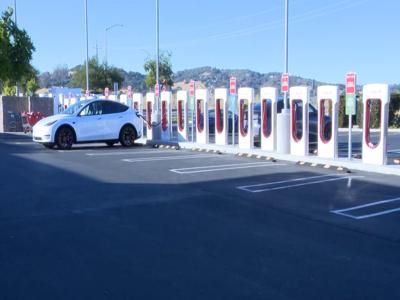DELAWARE- Delaware's Department of Natural Resources and Environmental Control (DNREC) held it's fifth public workshop on Thursday Dec. 15 regarding the state's plan to ban gas-powered vehicles by 2035.
Earlier this year Governor Carney announced that Delaware will adopt California's Zero Emission Vehicle (ZEV) regulations. The program is managed by DNREC and looks to improve air quality and increase access to electric car sales in the first state.
Under the proposed regulations, car manufacturers would be required to deliver a certain amount of zero emission vehicles to car dealerships each year. Starting in 2027, 43% of new car deliveries would have to be zero emission. Eventually building up to 100% by 2035.
DNREC officials said these regulations would make it easier for people living in Delaware to purchase electric cars.
"The way the regulation is written it would not effect the used car market and it would not have an impact on your ability to keep the car that you already have," said Angela Marconi, director of DNREC’s Division of Air Quality. "Right now this is passenger vehicles only it is not for all vehicles so it would not apply to heavy duty trucks it would not apply to farm equipment."
According to DNREC, transportation is the leading source of greenhouse gas emissions in the state.
Delaware signed onto the U.S. Climate Alliance in 2017, making a commitment to reduce carbon emissions by at least 26% by 2025.
State officials believe vehicle regulations could make progress on these goals. However, some Delaware drivers have other concerns.
Tim Reynolds lives in Dover. He questioned the reasoning behind the program. "Are they going to say climatic change and global warming?" Reynolds asked. "Okay but we haven't looked at the long term impact of those batteries that they are using that are non-recyclable. How are we making the electricity to charge those batteries?"
If the program moves forward, DNREC plans to hold a public hearing in early 2023. Currently 13 states have adopted California's Zero Emission Vehicle regulations including New York and New Jersey.



